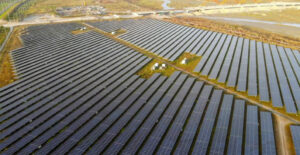BSP pause likely if April inflation eases

THE PHILIPPINE central bank may consider pausing its monetary tightening next month if April inflation does not accelerate, its governor said on Sunday.
Bangko Sentral ng Pilipinas (BSP) Governor Felipe M. Medalla said in a telephone message to Reuters that a pause in interest rate increases was possible “if the April CPI (consumer price index) is not higher than the March CPI.”
Mr. Medalla said a “zero or negative month-on-month inflation” may also support the case for a rate hike pause.
Philippine headline inflation eased for a second consecutive month in March to 7.6% from 8.6% in February. For the first quarter, inflation averaged 8.3%, still higher than the BSP’s 6% full-year forecast.
Since May 2022, the Monetary Board raised key interest rates by 425 bps, bringing the benchmark policy rate to a near 16-year high of 6.25%.
Some analysts said the BSP may still raise the benchmark interest rate to as high as 6.75% to quell persistent second-round effects as core inflation remains elevated.
However, core inflation quickened to a fresh 22-year high of 8% last month from 7.8% in February.
“In our view, Bangko Sentral ng Pilipinas is likely to see this pickup as a sign of more persistent second-round effects and is therefore a concern,” Nomura Chief ASEAN (Association of Southeast Asian Nations) Economist Euben Paracuelles and analyst Rangga Cipta said in a note.
Despite easing headline inflation, Nomura still expects the central bank to hike borrowing costs by 25 basis points (bps) at each of its next two meetings on May 18 and June 22 before pausing. This would bring the key policy rate to 6.75%.
“We think the pickup in core inflation in March will leave BSP uncomfortable with the inflation outlook, with second-round effects likely to be deemed as more persistent and therefore provide scope for a further monetary policy response,” Nomura said.
Nomura noted Philippine core inflation was broad-based, as price increases quickened in items such as household equipment, restaurants, communication services, recreation and personal services.
Following the release of inflation data, the BSP said it is prepared to adjust its policy stance as necessary to tame price pressures and prevent more second-round effects from emerging.
“In our view, this signals a cautious tone and doesn’t clearly suggest BSP is already considering a pause, especially in reference to the risk of ‘additional’ second-round effects, which were evident in the core inflation pickup,” Nomura said.
Nomura also expects the BSP to begin cutting its policy rate starting March, with a total of 125 bps to bring the rate to 5.5% in 2024.
It projects inflation to average 5.8% this year, before easing to 3.1% in 2024.
“Our forecast continues to pencil in a trajectory, in which headline inflation has already peaked, but will moderate only slightly to 6.9% year on year in the second quarter, before dropping further to 3.2% in the fourth quarter, which would see it back within BSP’s target, partly due to base effects,” Nomura said.
Month-on-month inflation will not decline until July, it added.
“The downside risks posed by the lower-than-expected outturn in March is, in our view, offset by recent increases in global crude oil prices, which are likely to have had an immediate impact on retail fuel prices,” Nomura said.
Global oil prices spiked earlier this month following the announcement by the Organization of the Petroleum Exporting Countries and their allies including Russia of further output target cuts of around 1.16 million barrels per day from May through the rest of the year.
“Monetary authorities will be looking for prices to fall outright, and not just a deceleration in year-on-year inflation. Thus, with core remaining sticky, there is an upside risk for the BSP to continue tightening should data support it,” Security Bank Corp. Chief Economist Robert Dan J. Roces said.
Unless core inflation eases in April or weak first quarter economic growth will be reported on May 11, Mr. Roces said the BSP will continue its tightening cycle by another 25 bps on May 18.
“We do think, however, that the monetary authorities have done enough; with the peso relatively behaved, loan growth beginning to weaken, and an inflation trajectory on track to decelerate, the BSP may still pause at the current 6.25% policy rate, with rate cuts to take place only in the second quarter of 2024,” he said.
Meanwhile, Pantheon Chief Emerging Asia Economist Miguel Chanco said that core inflation may stabilize by April, which adds weight to the view that the Monetary Board will consider a pause in May.
“Headline disinflation should continue over the remainder of this year, with the mean-reversion in food inflation likely to remain the biggest drag, followed by continued disinflation in oil price-sensitive sub-indices,” Mr. Chanco said.
He said full-year inflation will settle at 5.4%, below the BSP’s 6% average forecast for this year.
“Our baseline implies that inflation will return to the BSP’s 2%-to-4% target range in October, at the earliest… (Core inflation) should show some much-needed stability by the time (Monetary Board) members next meet,” Mr. Chanco said. — Keisha B. Ta-asan and Reuters




